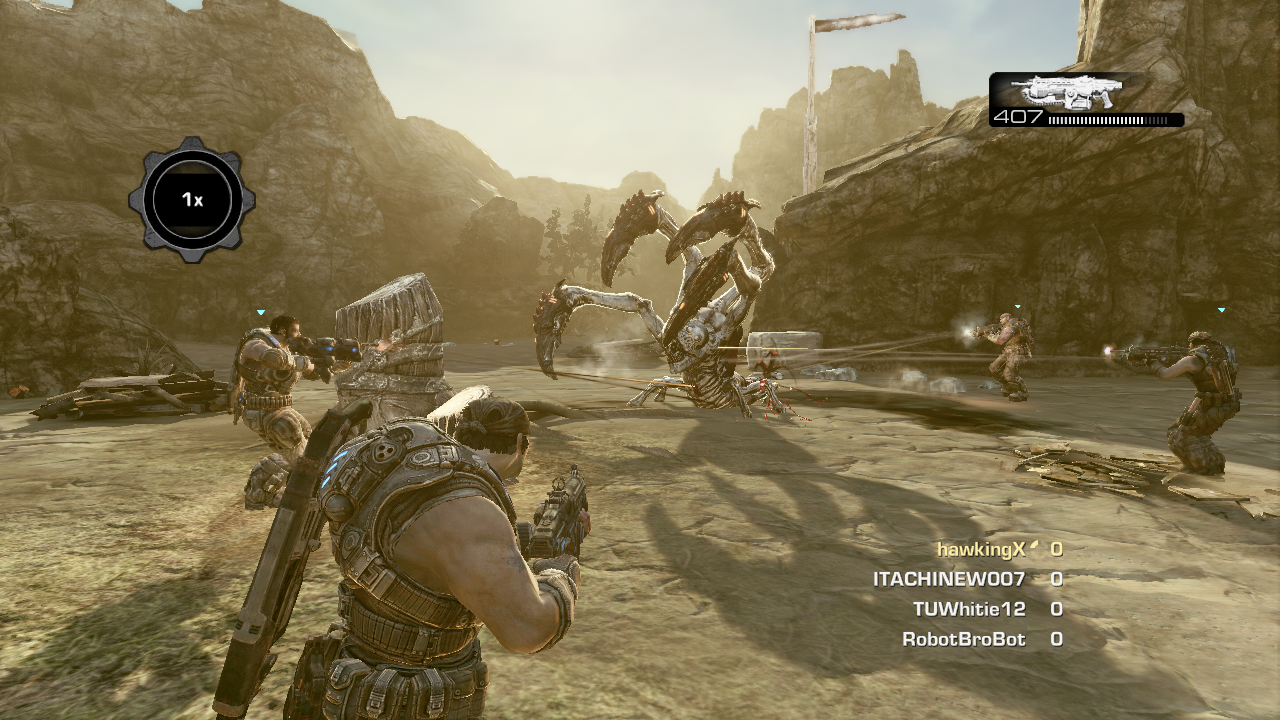
The other side of this coin isn’t “non-incentivized” co-op, as all co-op inherently comes with some measure of incentive. Even if it’s just having a friend there to talk to while you play there are benefits to playing a game cooperatively. Rather, as alluded to earlier, the other side is co-op that negatively impacts the overall gameplay experience and exposes you to some kind of negative behavior. These negatives carry over with us into the real-world and may be doing more harm than we realize.
Think of any co-op game you’ve played over the past two or three years where the second player is relegated to an “assistant” type position (Super Mario Galaxy, for example). These types of games may be fun to play with anyone who hasn’t been gaming for a great deal of time, but they also eventually begin to wear on both players. The player controlling most of the action may eventually start to feel like he or she would be able to progress further if he/she wasn’t waiting for the other player to catch up, and the other player may start to notice how little is actually being contributed by them. After a time, neither player has any real incentive to play that game together. What’s more, the next time you want to play a co-op game together, maybe you decide not to do so. Maybe you play while the other person watches. Maybe that person stops asking to play as many games with you in the future.
There are also those cases where player progress isn’t shared, or it’s very limited. A good example of this would be Dungeon Siege 3. The core of any good action/RPG game is looting and progression. In Dungeon Siege 3, the host player could do this in their game, but any player that joined would only be progressing the host; meaning all that loot and experience would stay with your friend while you went back home empty-handed. That’s fine if you plan on consistently playing with the same person, but it really stinks if you, like so many players do, want to play the game on your own. This was particularly a problem when it came to local co-op for many games where both players had their own PSN or Xbox Live ID, and progress could only be saved for one person. In cases like these, co-op becomes deferred as well. Players opt not to cooperate as they see no direct benefit to themselves in doing so. This is a bit more subtle behavior, but it reinforces that broader idea of “going it alone” and being detached. Why ask for help when it inconveniences someone?
Perhaps the worst offender in these terms is the so called “co-op-etition.”

First, what is co-op-etition? This is a Co-optimus made-up word that means two things: cooperation and competition. Games that immediately come to mind exhibiting this style of co-op are Gears of War's Horde Mode, Shoot Many Robots, Left 4 Dead, Halo’s Firefight; basically anything that puts you on a team with others against computer opponents that then compares your individual score, kill count, or whatever else with the other players. Whether in the story or outside of it, the team happiness will change if you attach individual scores to each player’s performance.
This type of scoring can help those that are highly competitive be incentivized to help the team overall, and even motivates some people to do better. However, it can also cause a lot of friction with the camaraderie of the team dynamic otherwise inherent in co-op gaming. Players begin screaming at one another, name calling and the fun times that could have been experienced are ruined because of the one thing in co-op that makes it not cooperative: an individual score.
The score can be anything in a game; racing lap times, kill count, items collected, whatever that game deems necessary to gauge how well individual players are doing. This is done even though they’re ultimately supposed to be a part of a team against the computer. In many ways, these types of co-op are carryovers from the days when the only multiplayer people knew was the competitive type.
One of the writer's here often opted to played these co-op-etition games in an “assistant” type role simply to avoid that conflict with others. That means merely helping by picking up the slack, cleaning up missed opponents, and almost playing on their own in the back of the group to avoid stepping on any scores – which causes yet another issue. Instead of hearing “You stole my kill, you expletive!” the cries changed to “This person sucks, why are they even playing?” ringing through the headphones among other much less polite things, exclusively from male players exhibiting behaviors from the “box” mentioned in the GDC video.